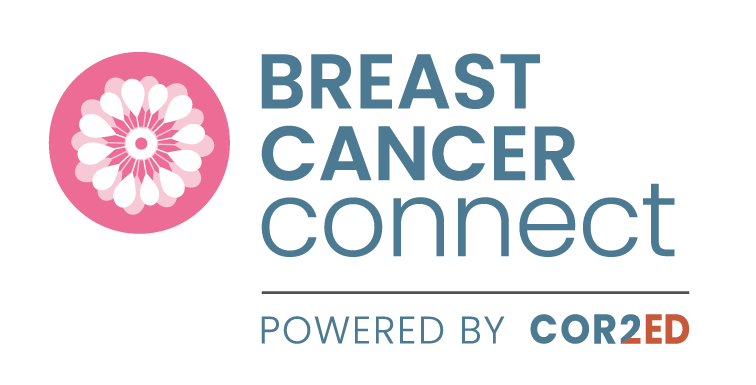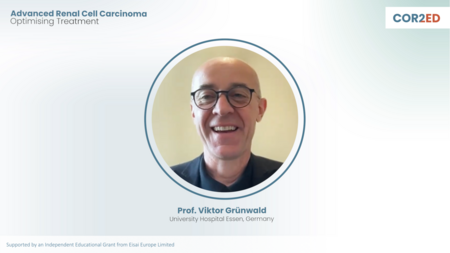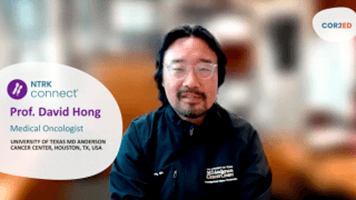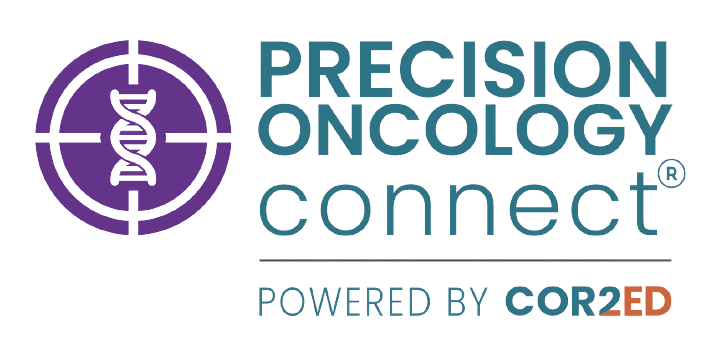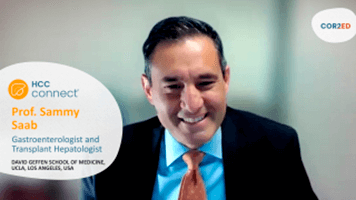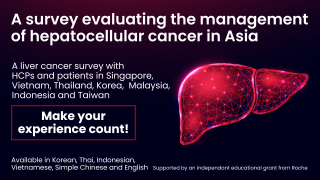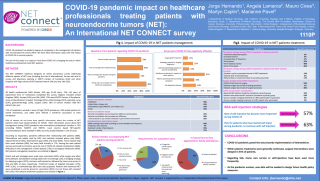
NET CONNECT Update from ESMO 2021
NET CONNECT Update from ESMO 2021
Dr. Angela Lamarca
Neuroendocrine tumour update by Dr. Angela Lamarca, The Christie NHS Foundation Trust / University of Manchester, UK
Dr. Angela Lamarca
Medical Oncologist
The Christie NHS Foundation Trust
United Kingdom (UK)
Dr. Angela Lamarca has received financial support/sponsorship for research support, consultation, or speaker fees from the following companies:
|
5 min
|
Oct 2021
This programme was made for you: your opinion matters
Share your feedback in just 4 clicks and help us to continue to create the content you need.
I agree that this educational programme:
Was valuable to me:
1/4
Has improved my knowledge of this topic:
2/4
Is likely to change my clinical practice:
3/4
Was balanced and unbiased:
4/4
download resources
This programme was made for you: your opinion matters
Share your feedback in just 4 clicks and help us to continue to create the content you need.
I agree that this educational programme:
Was valuable to me:
1/4
Has improved my knowledge of this topic:
2/4
Is likely to change my clinical practice:
3/4
Was balanced and unbiased:
4/4
Video Transcript
My name is Dr. Angela Lamarca, I’m a medical oncologist from the Christie NHS Foundation Trust in Manchester, United Kingdom.
I am here today on behalf of the NET CONNECT group to summarise for you the main abstracts presented at ESMO 2021 for the neuroendocrine tumour and endocrine cancer track.
Which abstracts did you select and why?
The three abstracts that I have selected are the FIRSTMAPPP study, exploring the role of sunitinib in malignant progressive pheochromocytoma and paragangliomas tumours, AXINET study exploring axitinib for extrapancreatic neuroendocrine tumours, and finally, the SPINET study looking into lanreotide for lung carcinoids.
What are the main conclusions?
FIRSTMAPPP Study
The FIRSTMAPPP clinical trial is one of the most relevant studies in the field of neuroendocrine tumours that has been presented here in ESMO 2021, and it was actually part of one of the plenary sessions.
This is a phase 2 randomised non-comparative study, randomising patients to sunitinib or placebo. And it is worth highlighting that a very rare sub-type of patients with neuroendocrine tumours were included. These were patients with paragangliomas and pheochromocytomas, a very rare subtype of neuroendocrine malignancies.
The study met it’s primary endpoint. It was showing a benefit in terms of 12 months progression free survival rate, as you can see in the slide, in favour of sunitinib compared to placebo.
There was also a benefit in terms of median progression free survival and a benefit in terms of partial response rate.
It is also worth highlighting that the benefit from treatment did not vary or did not depend on their status of SDHB mutation. This means that patients with or without these mutations were actually benefiting from treatment.
The treatment was well tolerated, and I do strongly believe that this trial is going to change practice.
AXINET Study
The second abstract I wanted to highlight is the AXINET study, which was assessing the impact on progression free survival of the combination of activity of axitinib and octreotide versus placebo and octreotide for patients with extrapancreatic neuroendocrine tumours.
The data presented during ESMO 2021 was the progression free survival by central review, one of the secondary endpoints.
The study met this secondary endpoint, showing a benefit in terms of progression free survival by central review and also a benefit in terms of partial response by central review.
SPINET Study
The SPINET clinical trial was randomising patients to lanreotide or placebo.
This was a trial recruiting patients with lung carcinoids. It was showing a median progression free survival of 16.6 months for patients treated with lanreotide, and it was apparent that this benefit from lanreotide was more clinically meaningful for patients with typical carcinoid malignancies.
Regarding changes in clinical practice, I think sunitinib is probably going to be introduced in the guidelines for management of paragangliomas and pheochromocytomas based on the FIRSTMAPPP study. I think axitinib has shown activity as an antiangiogenic agent for extrapancreatic neuroendocrine tumours and I think we now have a stronger data to use lanreotide for lung carcinoids as well.
Were there any other presentations of interest?
Regarding additional abstracts of interest, I would like to highlight the NICE-NEC study.
This was exploring the activity of nivolumab combined with carboplatin and etoposide chemotherapy in patients with grade three neuroendocrine neoplasms, and it actually showed an impressive response rate. I think we really need to watch out for additional data from this study when overall survival outcomes are presented.
It was also a very exciting to see how the CAR T-cell therapies are starting to come into the field of neuroendocrine tumours, and there were some preliminary results presented in one of the mini oral sessions. I think it is of course important to assess safety in a phase one clinical trial as soon as possible.
What are your take-home messages from ESMO 2021?
In terms of take-home messages I think that antiangiogenic treatments are going to be very much used in the coming future, and we have the example of sunitinib for pheochromocytoma and paraganglioma. And now we also have supportive data for axitinib in extrapancreatic neuroendocrine tumours.
In terms of immunotherapy I think combination with chemotherapy is key. And in terms of lung carcinoids we now have stronger data to support the use of lanreotide.
Please download the slides for much more detail on the abstracts selected and thank you all very much for watching.
NET CONNECT is an initiative of COR2ED, supported by an Independent Educational Grant from Ipsen and from Eisai Europe Limited.









